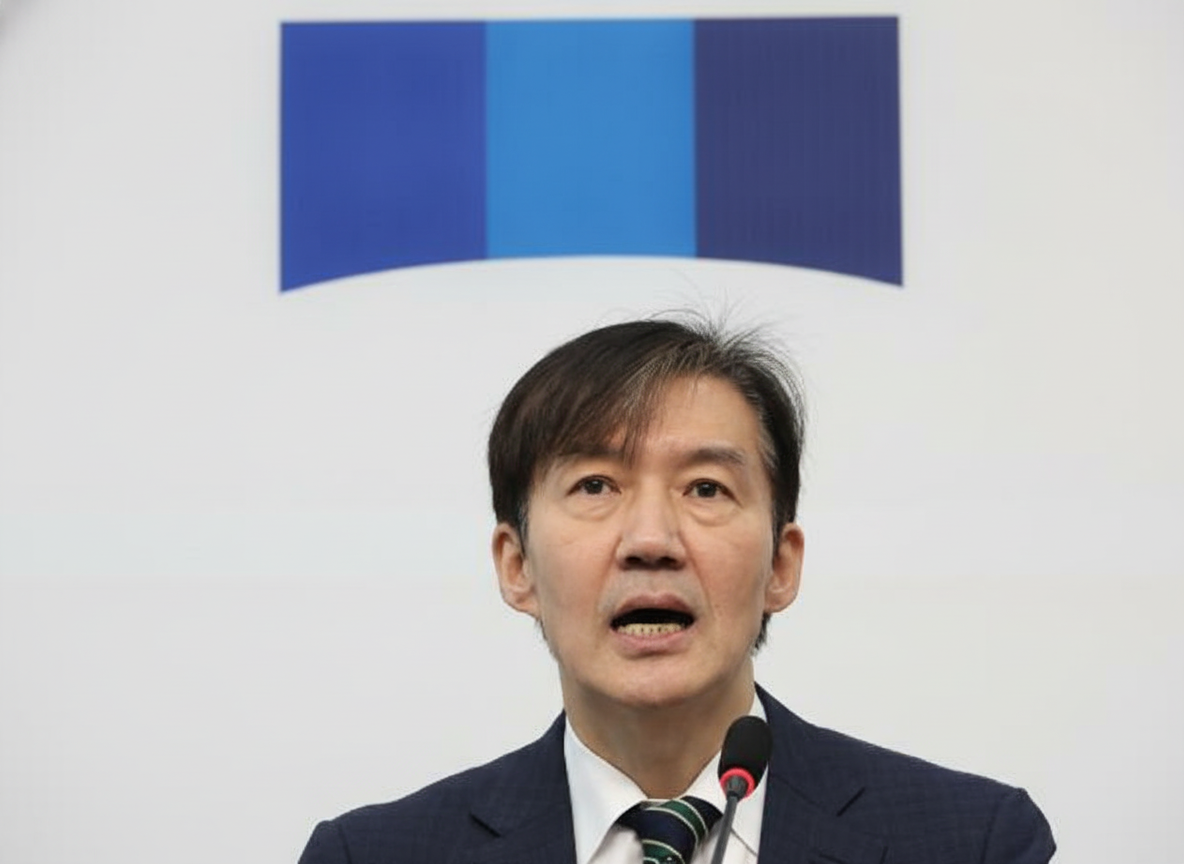Cho Kuk Accuses Lee Administration of Trying to Erase Itaewon Tragedy, Pledges Special Law Revision

Cho Kuk, head of the Rebuilding Korea Party's emergency committee, expressed his deep sorrow regarding the Itaewon tragedy on October 29, 2025, and pledged to revise the special law related to the disaster.
In a statement released on his social media, Cho emphasized that "the Itaewon tragedy was an unspeakable disaster," and reflected on the pain it caused. He noted, "It's October 29th again," lamenting the enduring grief that still weighs heavily.
Cho characterized the Itaewon tragedy as "a state failure where 159 precious lives were lost," offering condolences to the victims and their families. Critically, he accused the previous Lee administration of attempting to erase the Itaewon tragedy, drawing sharp criticism.
Cho's remarks are expected to reignite political debate surrounding the Itaewon tragedy. He is anticipated to raise questions about the previous administration's responsibility and push for revisions to the special law to uncover the truth and hold those responsible accountable. Furthermore, Cho is expected to emphasize the need for concrete measures to support the Itaewon tragedy's victims and their families, demanding proactive action from the government.
Cho Kuk, head of the Rebuilding Korea Party's emergency committee, also criticized the police response during the Itaewon tragedy on October 29, 2025, strongly criticizing the Lee administration's handling of the situation. He claimed that the police were focused on securing the presidential residence, leading to an inadequate deployment of personnel to Itaewon.
This assertion raises questions about the police's prioritization and suggests that bolstering security around the presidential residence may have negatively impacted the response to the Itaewon disaster. Cho's claim is likely to strengthen calls for clearly defining the scope of police responsibility in the special law revision debate. Public opinion is expected to intensify, demanding a thorough investigation into the decision-making processes of the police command at the time. Cho attributes the police's failure to the Lee administration and is expected to urge the government to conduct a thorough investigation. He is expected to actively pursue the submission of relevant materials and the appearance of related witnesses during future parliamentary discussions.
Cho Kuk, head of the Rebuilding Korea Party's emergency committee, questioned the sincerity of Lee Jae-myung and the People Power Party on October 29, 2025, pointing out their absence from the Itaewon tragedy memorial service. He criticized their absence as a display of indifference towards the Itaewon tragedy, accusing them of ignoring the pain of the bereaved families and victims.
Cho's remarks are likely to amplify criticism against the Lee administration and the People Power Party, damaging their reputation. He is also expected to escalate political attacks related to the Itaewon tragedy based on their absence from the memorial service. Cho is expected to urge the Lee administration and the People Power Party to sincerely apologize and reflect on their actions if they truly wish to mourn the victims of the Itaewon tragedy and comfort the bereaved families. He is expected to actively participate in future Itaewon tragedy-related events and memorial activities, strengthening solidarity with the bereaved families. This move aims to highlight a contrast with the Lee administration and the People Power Party, consolidating his support base.
Cho Kuk, head of the Rebuilding Korea Party's emergency committee, expressed his determination on October 29, 2025, to move forward with the Itaewon special law revision in the direction desired by the bereaved families. He promised to actively listen to the opinions of the bereaved families and reflect them in the special law to establish practical measures for truth-finding, holding those responsible accountable, and supporting victims.
Cho's pledge is expected to give hope to the Itaewon tragedy's bereaved families and raise expectations for the special law revision. It is also expected to build trust and secure political support through close communication with the bereaved families during the special law revision process. Cho is expected to emphasize that he will do his best to uncover the truth of the Itaewon tragedy, clearly define the state's responsibility, and prevent such a tragedy from happening again. He is expected to actively represent the opinions of the bereaved families during future special law revision discussions and play a leading role in persuading the government and the ruling party to revise the special law in the direction desired by the bereaved families. Cho's efforts are expected to provide practical assistance to the Itaewon tragedy's bereaved families and contribute to forming social consensus.
Cho Kuk's series of statements foreshadows that the Itaewon tragedy will be a major point of contention in the upcoming political landscape. In particular, his strategy of calling for a truth-finding investigation through special law revision while mentioning the Lee administration's responsibility is seen as a move to secure support from conservatives and increase pressure on the government. At the same time, it can be interpreted as an attempt to appeal to centrists by highlighting his humanitarian side through solidarity with the bereaved families.
However, such a political offensive may face criticism for politically exploiting the pain of the Itaewon tragedy. Therefore, Cho will need to overcome this criticism by strengthening communication with the bereaved families with a sincere attitude and presenting practical support measures. In addition, it is important to show that the bereaved families' interests are prioritized over political gains in the special law revision process. Only then will it be possible to heal the pain of the Itaewon tragedy and contribute to forming a social consensus.
